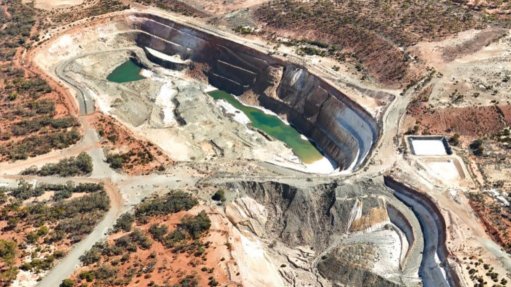More upgrades to growth outlook seen as reform momentum continues – Mavuso
Citing progress in dealing with the country’s logistics challenges and the ability of Operation Vulindlela to speed up reforms, economists at the Bureau for Economic Research (BER) last week upgraded their South African economic growth outlook projections, with growth of 2.2% anticipated for 2025.
That is ahead of the South African Reserve Bank’s expectation of 1.5% and the International Monetary Fund’s projection of 1.2%.
With this in mind, Business Leadership South Africa (BLSA) CEO Busisiwe Mavuso, in her latest weekly newsletter, says she expects further upgrades as reform momentum continues.
“Improved growth is the fruit of the reform efforts that we’ve seen in the last few years, ones that have largely overcome loadshedding, helped ease access to visas for skilled immigrants and are now easing our port and rail backlogs.
“And yet there is clearly much more to do that could ultimately move us closer to the 5% a year growth level that would enable a real difference in the welfare of our people,” Mavuso says.
She notes that French energy company TotalEnergies quit its two large offshore gas fields, Brulpadda and Luiperd, last week where it had made major discoveries back in 2013.
At the time, Mavuso points out, there were hopes that the discoveries would enable South Africa to develop gas independence and tap the energy source to transition away from the relatively more polluting coal.
She notes that now, however, TotalEnergies has said it is too difficult to economically develop and monetise the resources for the South African market.
“While the company did not say it, I am sure that ongoing regulatory uncertainty is a major contributor to that difficulty. Since TotalEnergies’ discovery, there has been a series of dramatic flip-flops over regulating the gas sector.
“Government has, at times, [said] it should get a free 20% ownership interest in all gas projects, only to then abandon amendments to the Minerals and Petroleum Resources Development Act.”
Mavuso adds that the department then introduced a new Bill to govern gas exploration and development which was passed by Parliament in April. She notes that some commentators have said the Bill violates the Constitution in several respects.
She explains that the Bill reintroduces the State’s right to a 20% interest in new projects at exploration and production phases and allows the Mineral and Petroleum Resources Minister to order companies to sell a percentage of petroleum to any State-owned company designated by the Minister.
“For any company looking to develop gas or petroleum resources, this is a new source of considerable uncertainty.
“The Bill is sitting on the President’s desk for assent and would be better sent back to Parliament for reworking that would enable companies to take on the huge risks of developing major new gas resources,” she expresses.
Mavuso says uncertainty remains the theme of the minerals sector more broadly, which has faced two decades of decline, arguing that the lack of exploration activity means the industry is in a “sunset phase” unless there is a considerable change in how the sector is regulated.
“We still have among the best mineral reserves in the world, yet we are steadily falling behind many other jurisdictions in the economic contribution such reserves can make.”
Mavuso also discusses the issue of an effective legal system for the business environment.
“I have written often enough about crime and corruption, but a further frustration is simply the efficient operation of our courts. The Johannesburg High Court, the busiest commercial court in our country, can now only give court dates for commercial litigants over a year from now. Road Accident Fund litigants will have to wait over four years,” she says.
Mavuso argues that lack of capacity is one of the reasons for this challenge, positing that there are not enough judges to hear cases.
She notes that Deputy Judge President Roland Sutherland has taken to pleading with the legal community to provide experienced lawyers to help deal with the backlog on a pro bono basis.
She argues that swift resolution of commercial disputes is key to business, adding that the backlogs in South African courts mean investment and other commercial decisions get held up.
Mavuso notes that this further dampens economic activity that will require a concerted effort from government, along with funding, to resolve.
Further, while there has been good progress in getting on top of crime and corruption, such as the legislating of the investigating unit at the National Prosecuting Authority before the election, and the signing last week by the President of amendments to the Independent Police Investigative Directorate Act that strengthen that institution to deal with police corruption, Mavuso argues that the overall effectiveness of the rule of law depends on the country’s courts.
“Of course, there are always going to be strengths and weaknesses that affect our economic outlook. Our challenge, in working with our government partners, is to shift the dial more toward strengths. That will result in further improvements to the growth outlook, which ultimately leads to more economic activity, jobs and taxes for government to use in improving social services,” she concludes.
Article Enquiry
Email Article
Save Article
Feedback
To advertise email advertising@creamermedia.co.za or click here
Press Office
Announcements
What's On
Subscribe to improve your user experience...
Option 1 (equivalent of R125 a month):
Receive a weekly copy of Creamer Media's Engineering News & Mining Weekly magazine
(print copy for those in South Africa and e-magazine for those outside of South Africa)
Receive daily email newsletters
Access to full search results
Access archive of magazine back copies
Access to Projects in Progress
Access to ONE Research Report of your choice in PDF format
Option 2 (equivalent of R375 a month):
All benefits from Option 1
PLUS
Access to Creamer Media's Research Channel Africa for ALL Research Reports, in PDF format, on various industrial and mining sectors
including Electricity; Water; Energy Transition; Hydrogen; Roads, Rail and Ports; Coal; Gold; Platinum; Battery Metals; etc.
Already a subscriber?
Forgotten your password?
Receive weekly copy of Creamer Media's Engineering News & Mining Weekly magazine (print copy for those in South Africa and e-magazine for those outside of South Africa)
➕
Recieve daily email newsletters
➕
Access to full search results
➕
Access archive of magazine back copies
➕
Access to Projects in Progress
➕
Access to ONE Research Report of your choice in PDF format
RESEARCH CHANNEL AFRICA
R4500 (equivalent of R375 a month)
SUBSCRIBEAll benefits from Option 1
➕
Access to Creamer Media's Research Channel Africa for ALL Research Reports on various industrial and mining sectors, in PDF format, including on:
Electricity
➕
Water
➕
Energy Transition
➕
Hydrogen
➕
Roads, Rail and Ports
➕
Coal
➕
Gold
➕
Platinum
➕
Battery Metals
➕
etc.
Receive all benefits from Option 1 or Option 2 delivered to numerous people at your company
➕
Multiple User names and Passwords for simultaneous log-ins
➕
Intranet integration access to all in your organisation





















